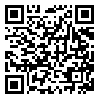Volume 1, Issue 2 (11-2014)
vacres 2014, 1(2): 16-23 |
Back to browse issues page
Download citation:
BibTeX | RIS | EndNote | Medlars | ProCite | Reference Manager | RefWorks
Send citation to:



BibTeX | RIS | EndNote | Medlars | ProCite | Reference Manager | RefWorks
Send citation to:
Nourizadeh M, Hadjati J. Effective Dendritic Cell-based Immunotherapeutic Vaccines for Acute Myeloid Leukemia (AML). vacres 2014; 1 (2) :16-23
URL: http://vacres.pasteur.ac.ir/article-1-41-en.html
URL: http://vacres.pasteur.ac.ir/article-1-41-en.html
Department of Immunology, School of Medicine, Tehran University of Medical Sciences, Tehran, Iran
Abstract: (8505 Views)
Acute myeloid leukemia (AML) is a type of poor prognosis hematological malignancies characterized by heterogeneous clonal expansion of myeloid progenitors. Leukemic stem cells are thought to form the majority of a cell population in minimal residual diseases (MRDs) which are resistant to current chemotherapeutic regimens and mediate disease relapse. Current therapeutic vaccine strategies have developed to mount effective anti-leukemic immunity and eradicate the MRDs. Dendritic cells (DCs) are the most professional antigen-presenting cells to elicit efficient anti-leukemic immune responses. In this review article, we present the possibility of generating AML blast-targeted DCs, especially leukemia-derived DCs and their appropriate maturation protocols and particularly the synergistic effects of TLR agonists. We also discuss about the in vitro evaluation of the generated DCs, some reported outcomes of DC-based clinical trials as well as the possibility of combination therapy to improve the efficacy of DC-based vaccines in AML patients.
Type of Study: Original article |
Received: 1970/01/1
Received: 1970/01/1
Send email to the article author
| Rights and permissions | |
 |
This work is licensed under a Creative Commons Attribution-NonCommercial 4.0 International License. |

This work is licensed under a Creative Commons Attribution-NonCommercial-NoDerivatives 4.0 International License.





